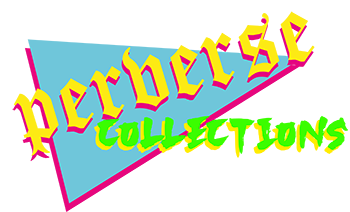Workshop Report: Lively Metaphors in Preservation Practices: Sex and Death (PERCOL workshop in the Netherlands, November 2023)
On 2-3 November 2023, the Dutch PERCOL team organized a closed workshop bringing together 35 museums/archives professionals, scholars, artists, grassroots activists and practitioners working with trans and queer archives. The workshop facilitated exchanges between people working with public/institutional collections as well as private, personally collected ones, centring the discussion around different potentialities and difficulties in working in the preservation of queer and trans subaltern collections. The first day was hosted by the EYE Filmmuseum in their Collection Centre in Amsterdam, while the second day took place in the Netherlands Institute for Sound & Vision’s event room in Den Haag.

Titled “Lively Metaphors in Preservation Practices”, the workshop focused on the theme of ‘Sex and Death’ in the archives. In working with various losses in queer and trans collections across Europe, the workshop aimed to unpack these forms of losses – ranging from those that are physically lost to those which are metaphorically lost due to them being neglected, unlabeled, wrongly categorized or presented under harmful terms. Eliza Steinbock opened the workshop asking, “Where does this material lie?” This was followed by a short screening of Jyoti Mistry’s film Loving in Between (2023), introduced by Sandro Weilenmann. The film is based on archival footage from the EYE’s collection. Juan Suarez and Glyn Davis chose three different sections from the film and – in conversation – highlighted the aesthetic articulation of queer and nonnormative erotics that lie at the heart of the film.
On the first day, the cinema space of the EYE Filmmuseum was fitting for show-and-tell presentations. Participants presented audio-visual materials, exploring their content, histories, collection purposes, and how materials are re-mediated and reshaped by artistic and audience engagement. In Panel 1, partners presented some materials varying from the institutional collections of the EYE Filmmuseum and IHLIA to the autonomous archive of El Punt Collective in Valencia. Through this panel, participants exchanged practices in archiving and managing marginalized collections. Simona Monizza showed materials related to David Singelenberg’s collection, Gerdien Smit talked about the Dutch feminist film collective Cinemien, Wilfred van Buuren presented the Gerrit van Jos collection, and Thea Sibbel introduced the Homosaurus data vocabulary platform.
The theme of panel 2 was preservation through artistic research. The presentation topics ranged from politics of identity, precarity and community at transgender film festivals (Cyd Sturgess), via Crimea’s underground queer club archive (Anton Shebtko) to reflections on working at the Schwules Museum Berlin (Thao Ho). In addition to sharing their audio-visual materials, presenters also shared their artistic and creative methods in documenting and (re)working with overlooked and/or rare collections.
The first day concluded with a semi-moderated discussion that consolidated the themes discussed. Participants considered practices of care, the potentiality of digitization and the (corrective) enrichment of metadata. Through these conversations, partners developed links and interconnections between various archival institutions and collections spread across Europe. Furthermore, the discussion highlighted the importance of accessibility and safety, collaboration, and solidarity in preserving LGBT history/heritage.
In addition to the day sessions, Anton Shebetko arranged an optional tour of the Recharge and Revolt exhibition at Melkweg. The exhibition, co-curated by Shebetko, explores how rave culture in Ukraine serves as an expression of (queer) resistance, and how it is particularly hard to preserve as a cultural-political activity. The exhibition features works from a variety of contemporary Ukrainian multimedia artists and collectives.


Divided into four panels, the second day had a more theoretical and conceptual dimension. The presentations contextualized scholarly and practice-based theories while describing works in progress, reflections, and potential re-workings of past initiatives and projects. Day two addressed the following themes: 1) sex and death in the archives through talks by Lieks Hettinga about unexpected strands of solidarity in the AIDS archive and Szymon Adamczak on the death of Bob Mellors, cruising spots and transnational queer liberation movements. 2) Preserving a movement/moment with case studies on the Trans Identity Movement in Italy by Stefania Voli and trans sex workers, ethics and archiving by the filmmaker and podcaster Morgan M. Page. 3) Selective memories and urgent voices; a presentation about secretive (familial) queer encounters by Luc Marraffa juxtaposed with queer and punk archives in Poland by Jennifer Ramme and the multi-tasking of the Háttér Society’s Archive in Budapest. And 4) Problems of temporality highlighting black, queer and trans community histories in the archive by Rudy Loewe; archiving and displaying histories of Kewpie’s gay life in District Six, Cape Town by Ruth Ramsden-Karelsen; and concluding with a presentation by Dagmar Brunow on trust and ethics in/of archives.
The “Lively Metaphors in Preservation Practices” workshop is one of the first steps to initiate (in)formal cooperation and collaboration between partners and institutions to unravel silenced and marginalized queer and trans collections. Moreover, it strives to encourage partners to open their collections for more research into queer and trans forgotten/neglected themes.
